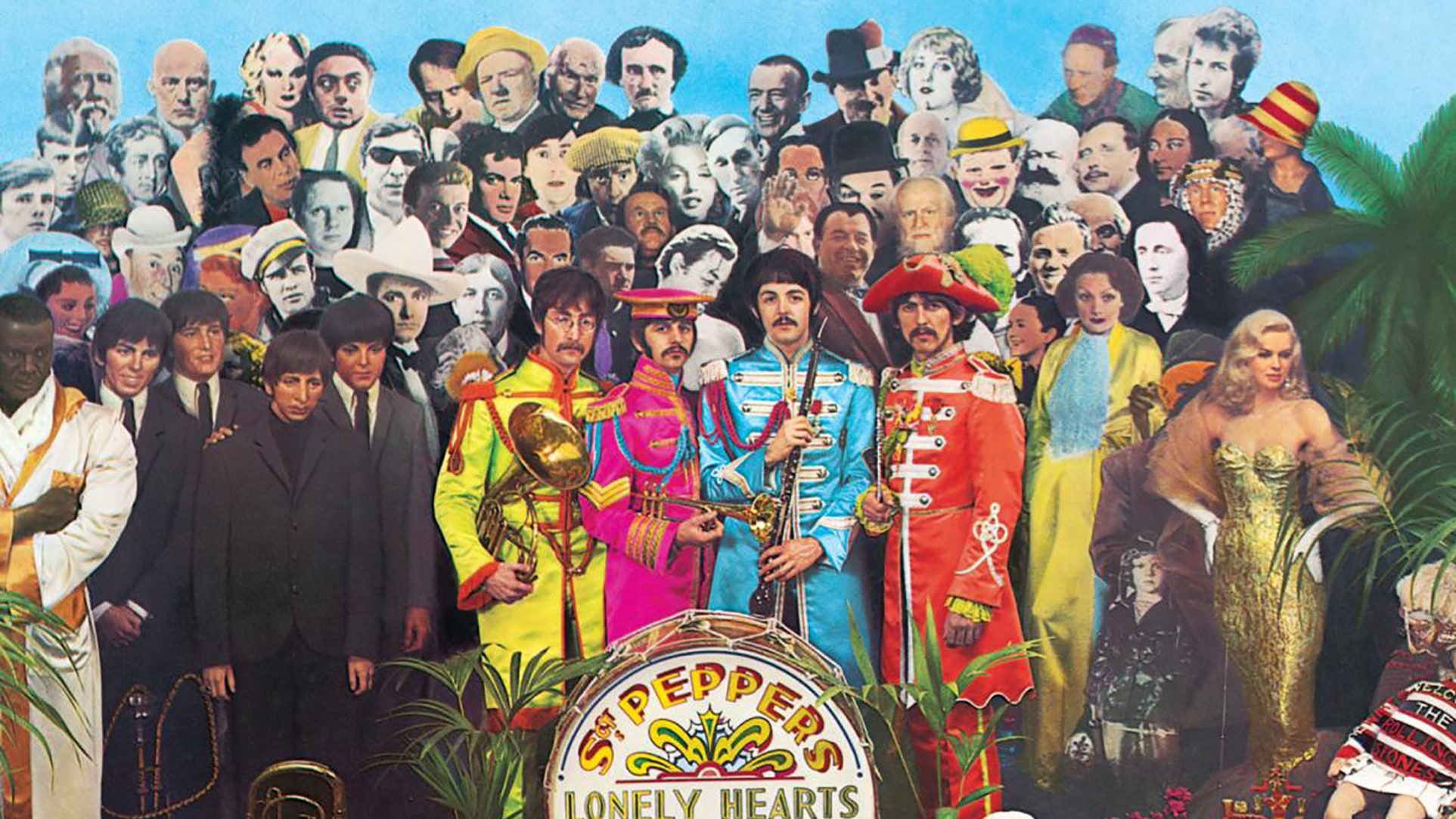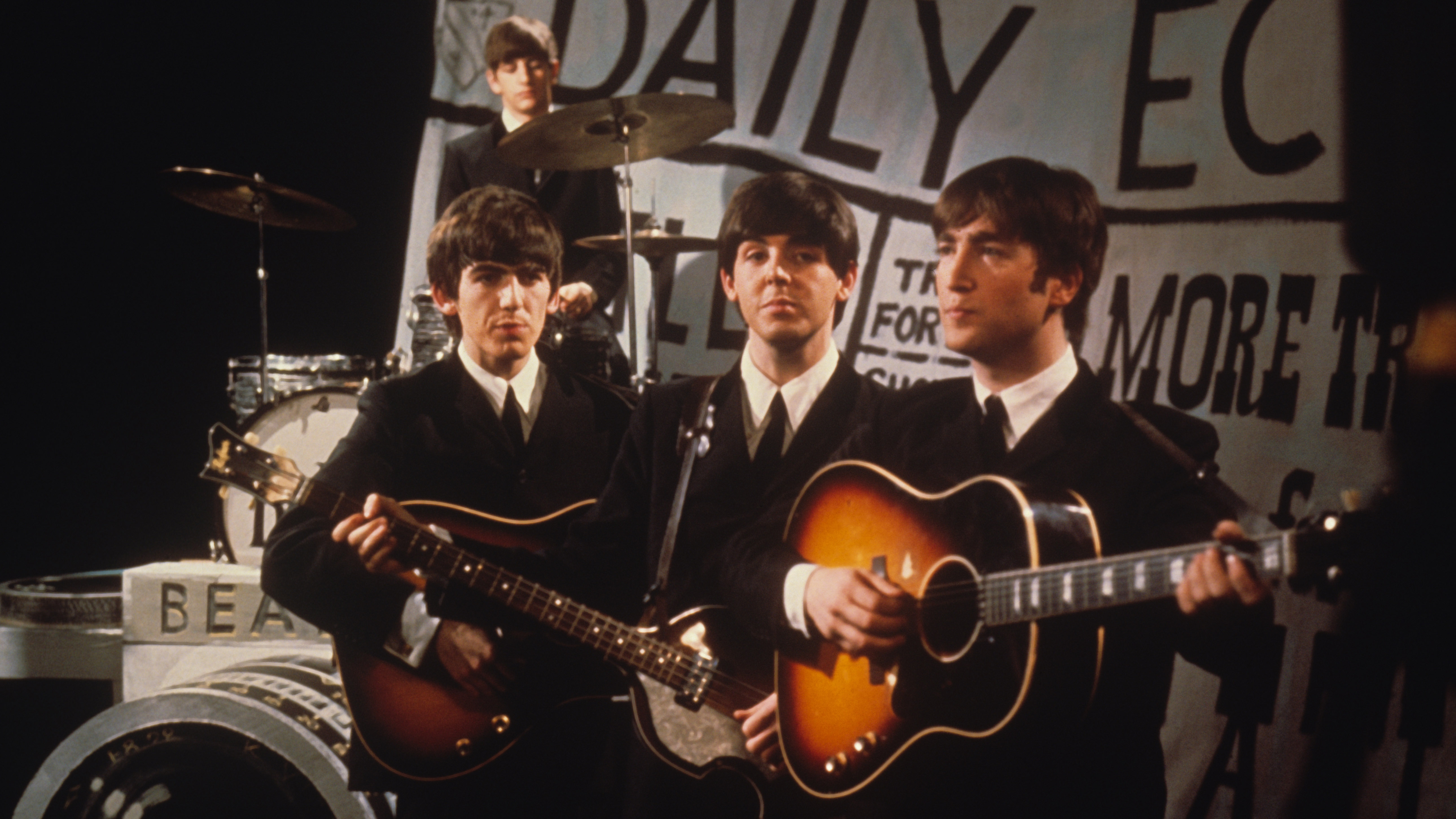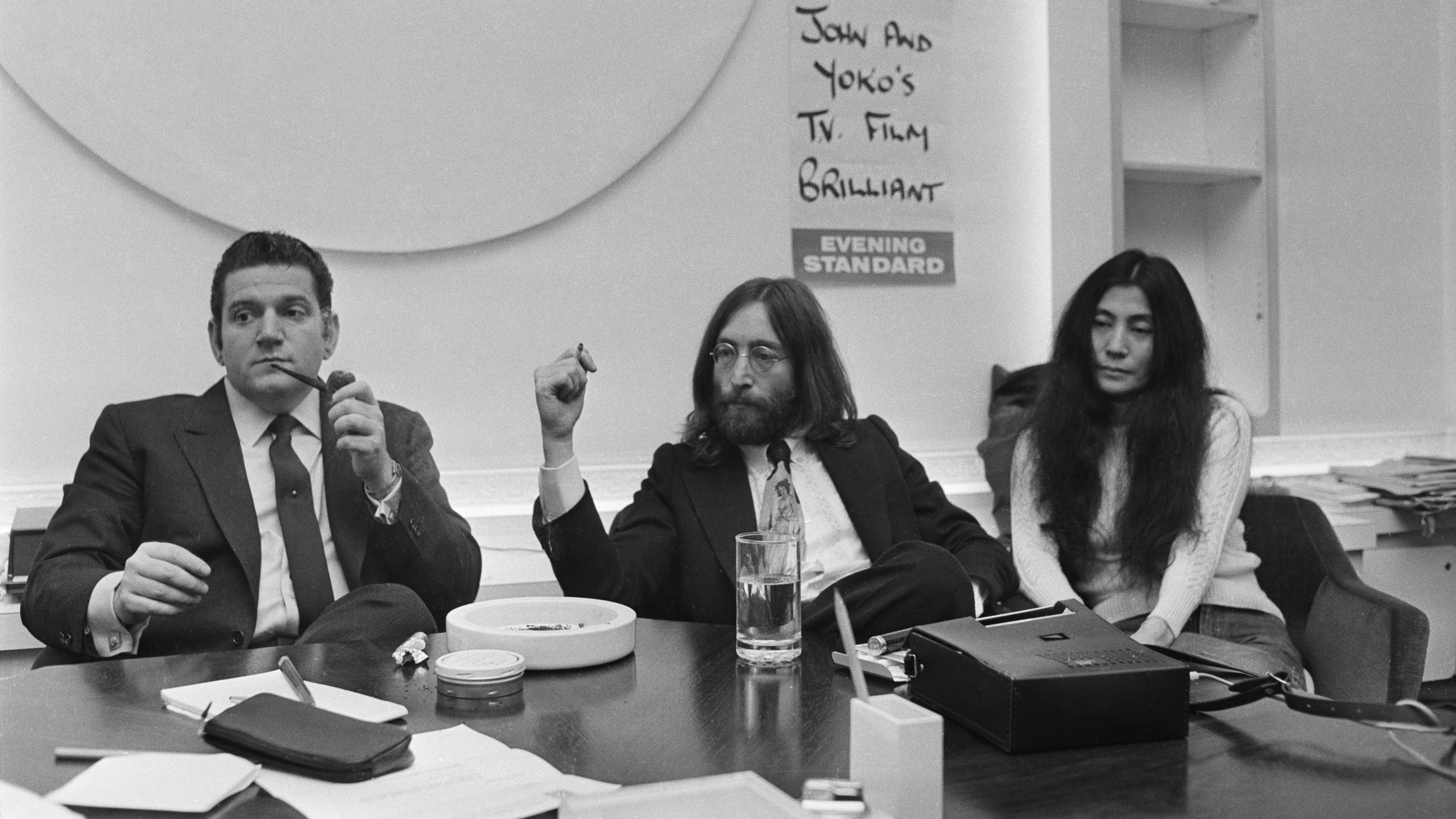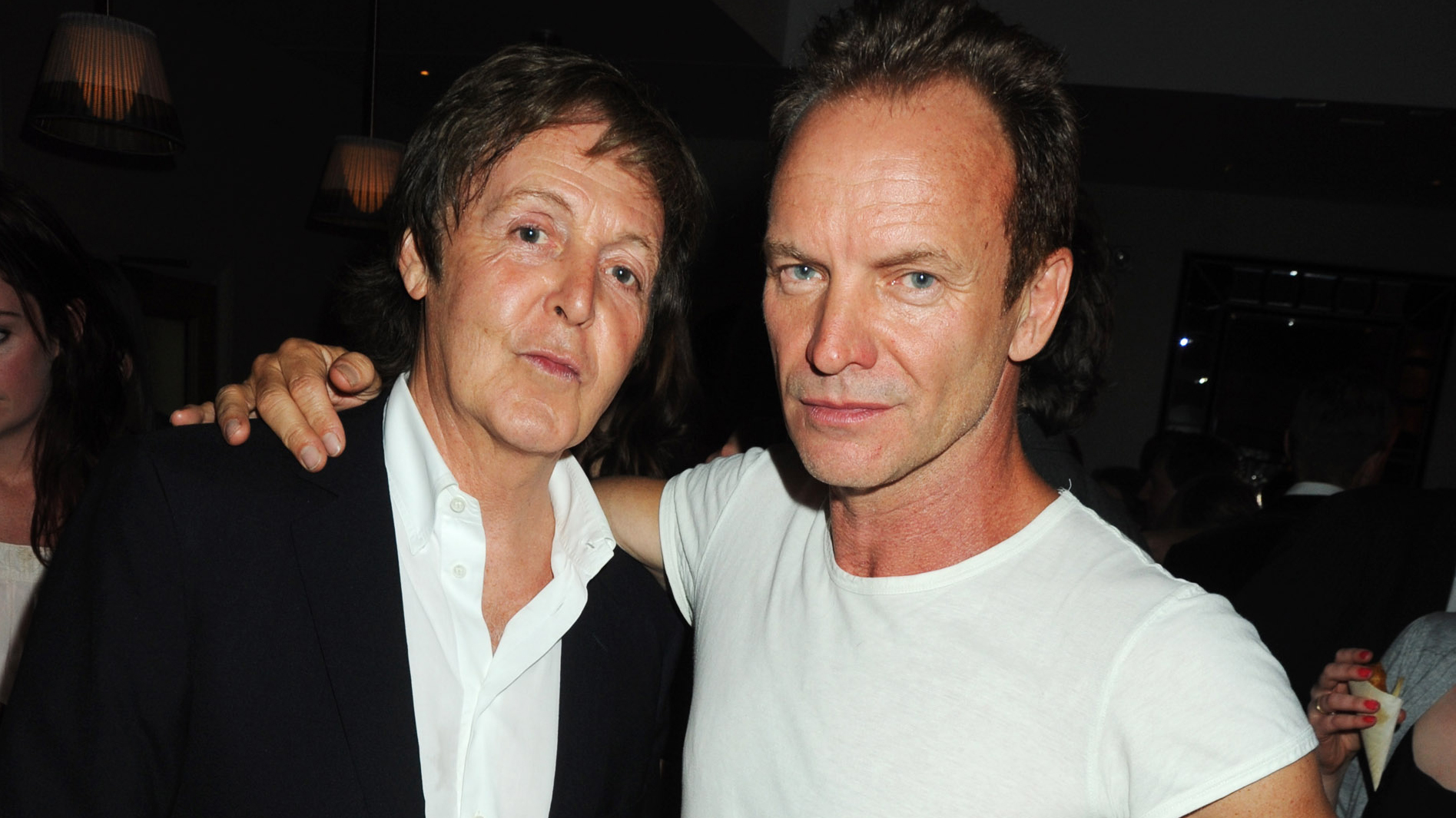
Paul McCartney's interview with National Public Radio's Terry Gross has already unearthed some interesting insights on the Let It Be and his thoughts on Peter Jackson's Get Back film. But the interview also contains some fascinating reflections from McCartney on the Sgt. Pepper's Lonely Hearts Club Band and his insider perspective.
McCartney describes the creative mindset in his new book, The Lyrics: 1956 To The Present as "writing in persona" and it marked a huge shift; he was no longer writing as a Beatle. The songwriter had decided it was time for a change.
You had certain standards for Beatles records… you were always trying to advance those standards but there were limits you felt.
"We'd been the Beatles for quite a while and when you made a record, you knew you were making a Beatles record and so you imposed certain parameters on it. You thought, well we can't get too far out as people will go, 'What the hell's going on?! They've gone mad'. So you had certain standards for Beatles records… you were always trying to advance those standards but there were limits you felt.
"And also when you stepped up to a microphone you were conscious of all that background of, 'I'm Beatle Paul and I'm going to do a Beatle Paul song'. And I don't think it was terrifying or even boring but I had this idea to change our identity and make ourselves think we were kind of another band."

10 Beatles guitar lessons you can learn from John Lennon and George Harrison in the Beatlemania era
That's no easy task – even for the Fab Four. It meant thinking with a new identity.
"Well now anything goes," McCartney explains, "we don't have to think like the Beatles. We can think like whoever this other band is. The name came out of Sgt Pepper's Lonely Hearts Club Band. The idea was when you stepped up to a microphone, it was not now 'John Lennon, Beatle' doing his song; it was a guy out of this strange band. And in some ways it was just liberating."
On reflection it was a hugely risky strategy to divert from what had been a hugely successful approach into a concept album under assumed identities. Of course, it proved a triumph. And McCartney reveals the influence that informed arguably its greatest masterpiece.
Get the MusicRadar Newsletter
Want all the hottest music and gear news, reviews, deals, features and more, direct to your inbox? Sign up here.
So the idea of the album became like a sort of radio play
"It meant you could stretch your ideas," says McCartney of his writing mindset. "So the idea of the album became like a sort of radio play, so it had a kind of concept. And then in things like Day In The Life, because I'd been listening to a lot of avant-garde music at that time, just for my own pleasure and justy examine the scene and just see if I liked it, I thought this orchestral cascade… this mountain of orchestra, quite chaotic, would be quite a good idea at this point in the song Day In The Life."
This is where the Beatles brought in a Symphony Orchestra to Abbey Road for the first time, and that presented a few challenges for both parties.

"So I came into the the studio and said, 'Here's what we'd like you to do,' because we had a big symphony orchestra. George Martin had said, 'Oh no we don't need that' and we'd sort of said, 'Come on George we're the Beatles – it's time, we're allowed a symphony orchestra.' Became EMI, they were very careful on their budgets so we'd occasionally push them. So I got in the studio and said to each musician, 'Start on the lowest note on your instrument and go up until you reach your highest note, but fo in your own time.' The idea being, this is Sgt Pepper's band and this is a completely new idea.
"So that's what we did, and George Martin was very helpful because he realised that it threw them into a state of panic and nobody knew what we were talking about. So George went around and said, 'It's 23 bars, we're now at bar 10 so maybe you should have reached about a quarter of the way'… so he laid it out on their musical charts.
"If you listen to it it's pretty chaotic… I heard it the other day actually," continues McCartney. "It's madness but it's what was needed in the song."
McCartney was clearly key force behind the creative shift on Sgt Pepper's, but elsewhere in the interview he reflects on the combination that made the made so special for him.

"The Beatles were a very special combination of talents. You had me doing what I do, John doing what he does and then you had George, who by then had come on as a very strong songwriter, and then gluing it all together you had Ringo. That was something very special, as has been proved by its longevity and the stuff we did together still sounds good and still lives today."
The combination was so strong, McCartney knew he could never top it, even when he formed his next band, Wings.
"It was a question of how can you get better than that? And I think I just had to say, well you can't but if you want to keep going maybe you should think about starting something else. So I did, I talked to my wife, Linda, and said, 'Do you want to be in a band? Do we want to start a band?
The only way I could do this was start as the Beatles did; at the bottom
But rather than trading on his huge success, McCartney chose to work his way back up with Wings.
"The only way I could do this was start as the Beatles did; at the bottom, and just play some little clubs or whatever it was. And we played little gigs, and gradually walk up that staircase again until you were now at the top. So that's what I did with Wings. But there was a very difficult period before we decided to do that where I was just kind of lost."
5 songs guitarists need to hear by… The Beatles

Rob is the Reviews Editor for GuitarWorld.com and MusicRadar guitars, so spends most of his waking hours (and beyond) thinking about and trying the latest gear while making sure our reviews team is giving you thorough and honest tests of it. He's worked for guitar mags and sites as a writer and editor for nearly 20 years but still winces at the thought of restringing anything with a Floyd Rose.
“Every note counts and fits perfectly”: Kirk Hammett names his best Metallica solo – and no, it’s not One or Master Of Puppets
“I can write anything... Just tell me what you want. You want death metal in C? Okay, here it is. A little country and western? Reggae, blues, whatever”: Yngwie Malmsteen on classical epiphanies, modern art and why he embraces the cliff edge









